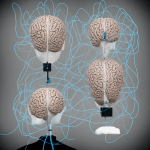Concussions in athletes are a prevalent concern. When this type of traumatic brain injury occurs, it can significantly impact performance and overall well-being. Additionally, it can create innumerable challenges for cognitive functions such as memory, attention, and processing speed. Therefore, it’s critical to explore strategies that can optimize cognitive recovery post-concussion in athletes.
Recognizing the Impact of Concussions on Athletes
Before diving into the strategies for cognitive recovery, let’s first understand the impact of concussions on athletes. A concussion is a type of traumatic brain injury induced by biomechanical forces, usually brought about by a blow to the head or the body, leading to the brain’s rapid movement inside the skull. This movement can alter brain function and lead to a variety of cognitive, physical, and emotional symptoms.
A lire aussi : How Can Periodized Nutrition Plans Enhance Endurance Performance in Ultra-Runners?
Damage from a concussion can cause issues with memory, attention, and processing speed, making it extremely challenging for an athlete to perform at their highest level. Furthermore, multiple concussions can lead to long-term complications, including chronic traumatic encephalopathy (CTE), a degenerative brain disease found in athletes with a history of repetitive brain trauma.
Cognitive Rest: A Primary Step Towards Recovery
One of the most universally recommended strategies for cognitive recovery post-concussion is cognitive rest. This involves reducing activities that require concentration and attention, such as schoolwork, video games, and extensive reading.
A découvrir également : What Techniques Can Improve Peripheral Vision for Better Performance in Racquet Sports?
Cognitive rest allows the brain to heal after a concussion. It involves reducing activities that require concentration and attention, such as schoolwork, video games, and extensive reading. By limiting these activities, the brain can dedicate its energy towards healing the injury. However, it’s essential to note that cognitive rest should not be prolonged unnecessarily, as it can lead to a decline in mental health and feelings of isolation.
Gradual Return to Physical Activity
Following an appropriate period of cognitive rest, a gradual return to physical activity is another critical strategy for cognitive recovery. Research has shown that integrating moderate physical activity into the recovery process can indeed be beneficial, contrary to previous beliefs that strict rest is required.
A carefully monitored, gradual return to physical activity can help stimulate the brain and improve cognitive functions. However, it is crucial to ensure that this reintroduction is done slowly and under medical supervision to prevent further injury.
Cognitive Rehabilitation Therapy
Another effective approach to optimizing cognitive recovery post-concussion is participating in cognitive rehabilitation therapy. This therapy is a type of neuropsychological therapy that aims to improve cognitive abilities following a brain injury.
Cognitive rehabilitation therapy is often tailored to the individual, focusing on improving specific cognitive difficulties such as attention, memory, and executive functions. Through cognitive exercises and strategies, this form of therapy can help athletes regain their cognitive abilities and return to their sport more quickly and safely.
Importance of Nutrition and Hydration
Finally, maintaining proper nutrition and hydration can play an important role in cognitive recovery post-concussion. The brain requires specific nutrients to heal and function properly. Therefore, consuming a balanced diet rich in omega-3 fatty acids, antioxidants, and B vitamins can aid in the brain’s healing process.
Likewise, staying well-hydrated is crucial. Dehydration can lead to headaches and fatigue, which can compound the symptoms of a concussion.
In conclusion, while post-concussion cognitive recovery in athletes is complex and individualized, these strategies offer a comprehensive approach to support the healing process. By understanding the impact of concussions, implementing cognitive rest, gradually reintroducing physical activity, engaging in cognitive rehabilitation therapy, and focusing on nutrition and hydration, athletes can enhance their cognitive recovery and return to their sport in a much healthier and safer manner.
The Role of Regular Sleep and Stress Management
A critical yet often overlooked aspect of cognitive recovery post-concussion is getting regular, quality sleep and effectively managing stress. Sleep plays a substantial role in the body’s ability to heal and recover, especially when it comes to brain health. During sleep, the brain works to repair itself, making it an essential component of post-concussion recovery.
Regular sleep not only helps the brain to heal but also enhances cognitive functions like memory and attention. Getting at least seven to nine hours of sleep per night is a guideline often recommended by health professionals. It’s also important to maintain a consistent sleep schedule, going to bed and waking up around the same time each day.
In tandem with sleep, managing stress is equally essential for cognitive recovery. High stress levels can exacerbate concussion symptoms and slow down the healing process. Stress management techniques such as mindfulness, meditation, deep breathing, and yoga can aid in reducing stress levels and boost the body’s healing capacity. Engaging in these activities can promote relaxation and improve overall mental well-being, indirectly contributing to faster recovery.
The Power of Social Support and Positive Attitude
Another crucial element in optimizing cognitive recovery post-concussion lies in the power of social support and maintaining a positive attitude.
Social support, whether it comes from family, friends, or healthcare providers, can play a pivotal role in an athlete’s recovery process. This support can provide emotional comfort, improve mental health, and even influence the healing trajectory. Encouragement and understanding from loved ones can significantly improve an athlete’s morale, reducing feelings of isolation or anxiety that can often accompany the recovery process.
Similarly, maintaining a positive attitude can have a profound impact on recovery. Researchers have found that a positive mindset can enhance the body’s ability to heal, reduce stress levels, and improve overall health outcomes. Athletes should be encouraged to focus on their progress and the positive aspects of their recovery rather than dwelling on the setbacks.
Wrapping Up: An Integrated Approach for Optimal Recovery
In summary, cognitive recovery post-concussion in athletes is a multifaceted process. It requires a comprehensive, integrated approach that encompasses not just physical care but also cognitive rest, gradual physical activity, cognitive rehabilitation therapy, nutrition and hydration, adequate sleep, stress management, and emotional support.
Each of these strategies is crucial in its own right. However, when combined, they offer a holistic approach to recovery, addressing the physical, cognitive, and emotional aspects of the athlete’s well-being. By focusing on these strategies, athletes can enhance their cognitive recovery, reduce the risk of long-term complications, and expedite their return to the sport they love.
While the journey to recovery can be challenging, it’s important to remember that every step taken is a step closer to recovery. With the right strategies and a supportive environment, athletes can successfully navigate their path to recovery and return to their sport in a healthier and safer manner.











